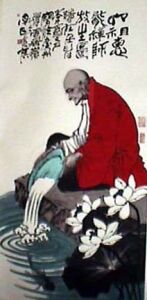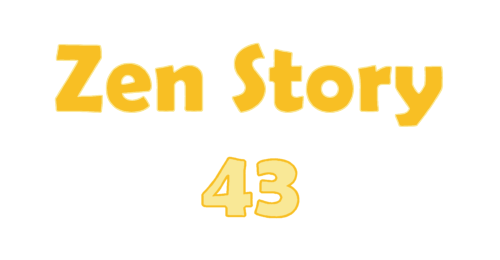|
There was a monk who meditated every day in the library containing
the sutras. However, he had never read any of the sutras there. One
day, the librarian asked him, "I noticed
that you meditate here everyday. Why don't you read the sutras?"
The monk replied frankly, "Because I'm illiterate."

"Why don't you ask someone for help?"
urged the librarian.
"But whom can I ask?" he inquired.
"You can ask me!" answered the
librarian bluntly.
Upon hearing this, the monk stood up and prostrated. Then, with his
hands held together and fingers interlaced, he asked, "What
is this, if I may ask?"
The librarian had nothing to say in reply. "This" referred
to our true nature. How could the librarian use words to express it
precisely?
|
The Ch'an School does not rely on any scriptures
as its basis of teaching, because our limited language cannot
describe the utimate character of the Buddha-nature. The Sixth
Patriarch, Hui-neng, had understood the sutras and explained their
essence even before he went to study at Huang-mei, although he
had not yet attained realization then. Later, when he met the
Fifth Patriarch, he was assigned to work in the mill every day.
Eventually, he became enlightened without studying any scriptures.
Therefore, realization is not attained merely through the studying
of scriptures.
The illiterate monk could not read the
sutras. Nonetheless, he sat in meditation in the library every
day and practiced diligently. The librarian kindly urged him to
overcome his illiteracy, but the monk responded by referring to
the realm of realization. Ch'an is not confined to any scriptures.
If one meditates diligently, one can also behold one's own Buddha-nature.
|
(Source: Hsing Yun's Ch'an Talk, Book 3) |










